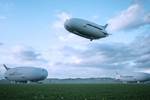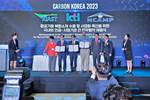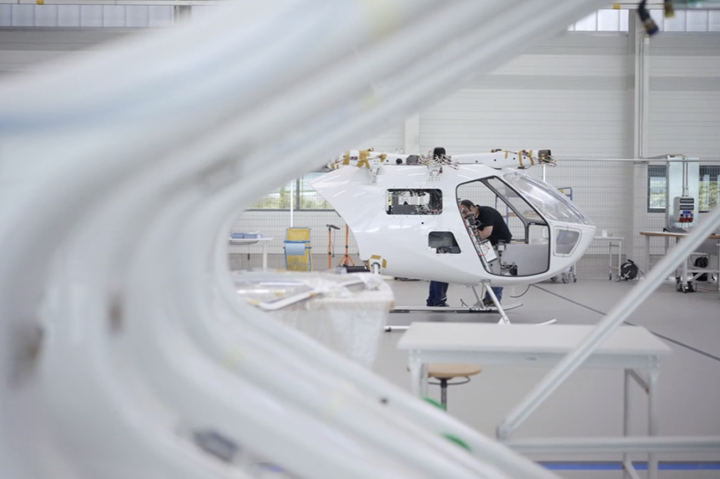Volocopter receives green light for VoloCity serial production
Production organization approval (POA) extension gives Volocopter the ability to design and produce the eVTOL aircraft in Bruchsal once it receives type certification.
Advanced air mobility (AAM) company Volocopter (Bruchsal, Germany) has received the German Federal Aviation Office’s (Luftfahrtbundesamt or LBA) production organization approval (POA) extension that enables the production of the VoloCity aircraft. This POA extension applies to the two new Volocopter production and hangar facilities in Bruchsal, Germany, that were first unveiled in April 2023.
Volocopter holds both design organization approval (DOA) and POA. Volocopter received the European Union Aviation Safety Authority’s (EASA) DOA in 2019, followed by the initial POA in 2021 with the acquisition of DG Flugzeugbau. This POA extension lists the approved production of an electric vertical takeoff and landing (eVTOL) in the POA’s scope of work, from prototyping to serial manufacturing — essentially, Volocopter now has the full trust and authority to design and produce the VoloCity in-house autonomously and has entered the pre-serial production stage of manufacturing.
“This is a major milestone for us,” says Andreas Fehring, chief operating officer (COO) of Volocopter. “Aircraft design and production are strongly regulated for a good reason: to produce safe mobility products. I am pleased that Volocopter’s production facility has the trust of and stamp of approval from LBA to manufacture commercial aircraft that can be delivered to customers once the VoloCity receives type certification. Our team has proven that we can produce safe and high-quality test aircraft, and we now look forward to shortening our production lead time for scaling.”
Under the EASA’s special condition VTOL (SC-VTOL) enhanced certification category, the VoloCity will become the first commercial eVTOL with the highest global safety standards in aviation. Achieving this safety standard will enable the aircraft to fly above congested urban areas quietly and efficiently, adding an extra layer of alternative mobility to the transportation mix in cities.
Related Content
-
Composite sidewall cover expands options for fire-safe rail components
R&D project by CG Rail explores use of carbon fiber-reinforced thermoplastics and recycled manufacturing scrap to meet fire safety, weight and volume targets.
-
Honda begins production of 2025 CR-V e:FCEV with Type 4 hydrogen tanks in U.S.
Model includes new technologies produced at Performance Manufacturing Center (PMC) in Marysville, Ohio, which is part of Honda hydrogen business strategy that includes Class 8 trucks.
-
Infinite Composites: Type V tanks for space, hydrogen, automotive and more
After a decade of proving its linerless, weight-saving composite tanks with NASA and more than 30 aerospace companies, this CryoSphere pioneer is scaling for growth in commercial space and sustainable transportation on Earth.














